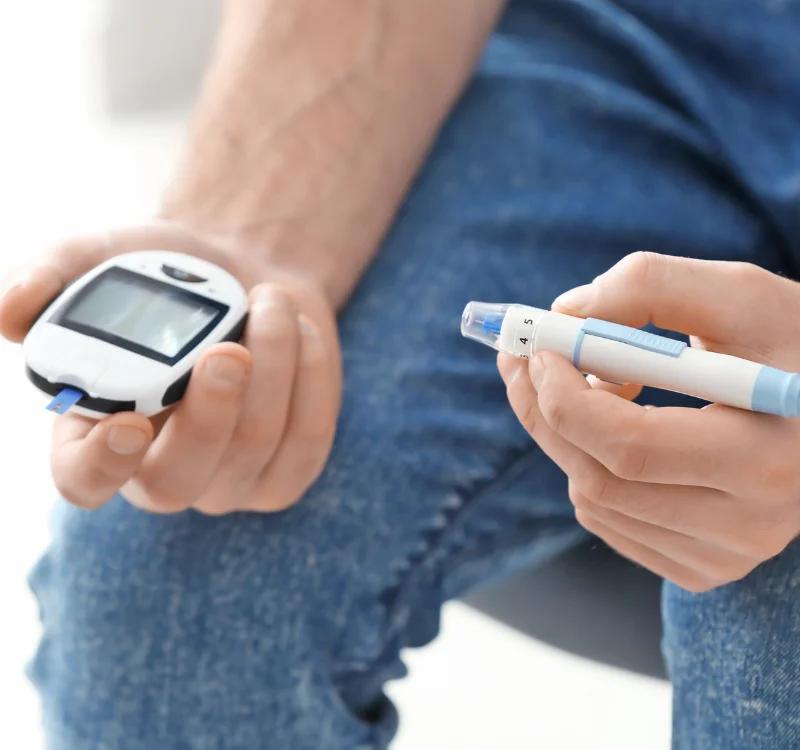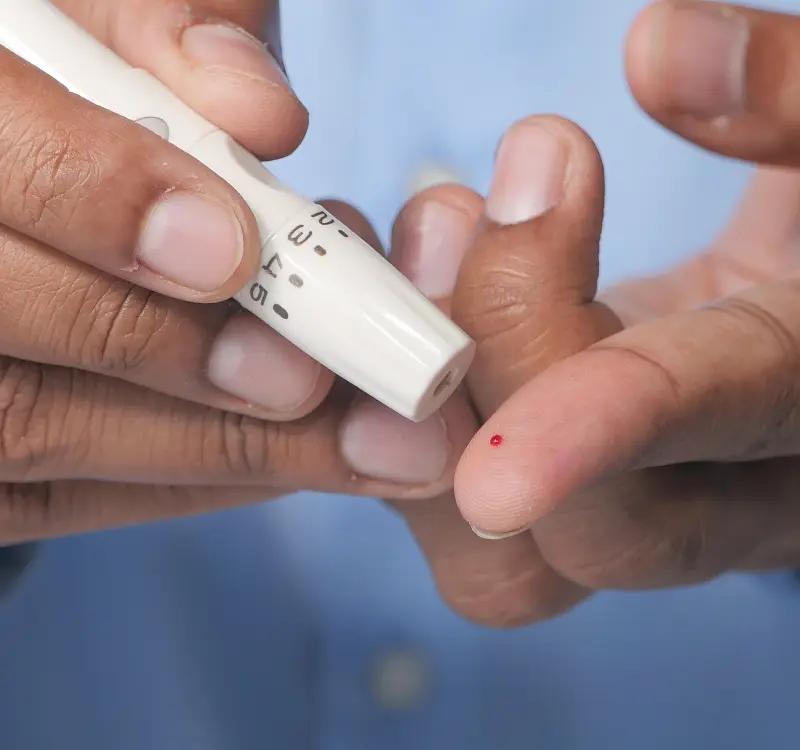How to Manage the Diabetes Cycle? Simple Tips to Manage Sugar Stages at Home
Sep 11, 2024

Diabetes is one of the most common diseases which concern millions of people all over the world. It is a critical medical condition that affects the body’s ability to maintain appropriate blood glucose levels and will cause other health problems. Knowing the causes, types, symptoms, and ways to prevent and manage diabetes is key to controlling the disease effectively.
Table of Contents:
- know the Causes of Diabetes.
- Types of Diabetes.
- Let’s explore the Unusual symptoms of Diabetes.
- What are the different Ways to Control Diabetes?
- Conclusion.
- FAQs.
Do you know the Causes of Diabetes?
Diabetes involves problems with the utilization of glucose, which is the body’s main source of energy. It is derived from the foods that we consume as well as controlled by a hormone known as insulin that is produced in the pancreas. The main causes of diabetes are:
1. Genetic Factors: Medical history thus counts as one of the most important contributing factors to diabetes. In case a close family member has diabetes, the risk of development of the same condition is high because of certain hereditary factors.
2. Autoimmune Reactions: This form of diabetes is as a result of an autoimmune response where the body produces antibodies that destroy the insulin producing beta cells of the pancreas. This leads to almost null secretion of insulin in the body.
3. Obesity and Poor Diet: Being Overweight is a risk factor that is linked with obesity particularly abdominal obesity with Type 2 diabetes. Negative nutrient consumption including processed foods and sugar impart insulin resistance and obesity.
4. Physical Inactivity: Lack of exercise can lead to weight gain and increased insulin resistance. Regular physical activity helps maintain a healthy weight and improve insulin sensitivity.
Types of Diabetes
1. Type 1 Diabetes: An auto-immune disease whereby the body attacks the cells in the pancreas, which is responsible for producing insulin. It usually begins in childhood or early adulthood and is treated with insulin throughout the patient’s life.
2. Type 2 Diabetes: It is associated with insulin insensitivity and ultimately, a decline in the production of the hormone. This type of diabetes is most prevalent and is mostly linked to factors such as obesity, unhealthy diet, and lack of exercise. It can often be treated through dietary changes and oral medication but insulin may be needed for severe cases.
3. Gestational Diabetes: Develops during pregnancy and commonly resolves after giving birth. Nevertheless, women who experience GD have a higher chance of developing Type 2 diabetes in their later years.
Let’s explore the Unusual symptoms of Diabetes
It is important to be able to identify typical signs of diabetes so that they can receive a timely diagnosis.
1. Frequent Urination: Diabetes brings about high blood sugar levels and the kidney’s struggle to filter and absorb such sugars means that more urine is produced.
2. Unexplained Weight Loss: As the body fails to produce enough insulin, the body begins to break down muscles as well as fats for energy, and in spite of an increase in food intake, the individual may shed some weight.
3. Extreme Fatigue: It may become challenging for the blood cells to utilize the glucose and result in soreness and tiredness that may persist for several days.
4. Blurred Vision: High levels of blood sugar mean that fluid is drawn out of tissues, like the lenses of the eye, and this impacts vision.
5. Slow Healing Sores or Infections: The disease can hamper the normal healing process of the skin and delay the ability of the body to recover from cuts or combat infections.
6. Tingling or Numbness: When blood glucose is high, nerves can get damaged which gives symptoms like tingly, numb, and painful hands or feet.
What are the different Ways to Control Diabetes?
There are several ways through which diabetes can be prevented; this includes taking medicines, changing one’s diet, and getting a check-up. Here are effective strategies for managing diabetes:
1. Healthy Diet: A well-planned diet comprised of vegetables, fruits, whole grains, lean proteins, and healthy fats may prevent or control blood sugar. Especially, attention should be paid to the carbohydrate content.
2. Regular Exercise: Simple exercises like walking, jogging, and strength training activities also reduce insulin resistance and ensure that body weight is well-checked.
3. Medication: People diagnosed with Type 2 diabetes may need to take oral medications or insulin injections to control blood sugar levels. The primary treatment of type 1 diabetes is insulin therapy, and it cannot be stopped for the entire duration of life.
4. Blood Sugar Monitoring: Regular monitoring of blood sugar levels helps track how well the management plan is working and allows for adjustments to be made as needed.
5. Weight Management: Weight loss and weight control help in weight reduction and reduce insulin resistance hence improving the health of the persons with diabetes.
6. Stress Management: One should be able to manage stress through relaxation techniques including meditation, yoga, or any other form of relaxation and this will lead to improvement in blood sugar levels and overall well-being.
7. Regular Check-ups: Healthcare provider visits are very important since a person with diabetes should see his or her doctor for routine checks and evaluation of diabetes management.
Conclusion
Understanding the sugar stages in the diabetes cycle is importantfor managing diabetes. The sugar stages represent the different levels of blood glucose throughout the day. By tracking these sugar stages, people can better manage their diabetes cycle, which involves controlling high and low blood sugar levels through diet, medication, and exercise. Recognizing and adjusting for the various sugar stages in the diabetes cycle can help keep blood sugar levels stable and improve overall health.
It has to be noted that diabetes need not always be a problematic factor, one can still have a normal, healthy, balanced life despite the disease. If you are experiencing the signs of diabetes or if you are a candidate to be diabetic, you should visit your doctor for a physical assessment and the right advice.
Frequently Asked Questions
Understanding the sugar stages helps in managing diabetes by allowing individuals to make informed adjustments to their diet, medication, and lifestyle to maintain stable blood glucose levels.
Yes, unusual symptoms of diabetes, like extreme thirst or fatigue, can sometimes be mistaken for other health issues, making proper diagnosis essential.
The honeymoon phase in diabetes is a period when a person with Type 1 diabetes experiences a temporary improvement in blood sugar control after starting insulin therapy.
Diabetes patients may feel hungry due to unstable blood sugar levels, which can disrupt the body's normal hunger and satiety signals.
The diabetes cycle involves continuous fluctuations in blood sugar levels due to factors like diet, medication, and physical activity.
Sugar stages refer to the varying levels of blood glucose throughout the day, which are important for managing diabetes effectively.
Feeling sleepy after eating can be a sign of diabetes, as high blood sugar levels can cause fatigue and drowsiness.
Unusual symptoms of diabetes can include persistent thirst, frequent urination, unexplained weight loss, and blurry vision.















